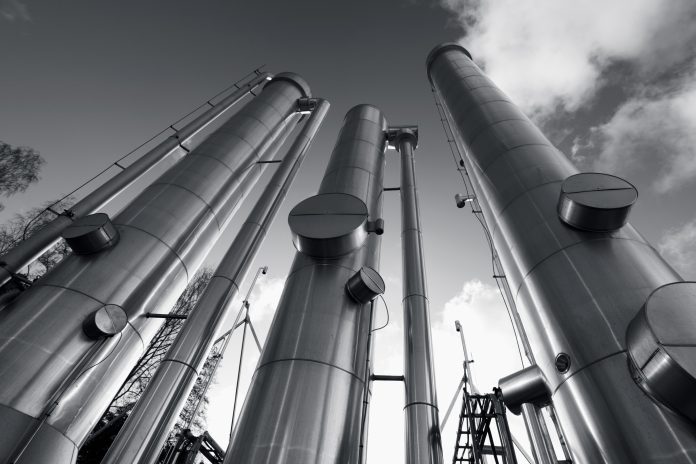The Joint Economic Forecast finds that €220 billion of economic output would be at risk over 2022 and 2023, if Germany cut ties with Russian gas supplies
While Russian violence continues in Ukraine, a coalition of European countries decide how to transition from Russian energy. Initial support for a full embargo was strong, with the European Commission proposing various ways to accelerate the Green Deal.
55% of German natural gas imports come from Russia
Numbers from Eurostat find that in 2019, 27% of crude oil imports, 41% of natural gas, and a hefty 47% of coal came from Russia. These exact numbers are different from country to country, with Italy mainly relying on Russian gas, while Malta and Greece depend on imports of petroleum products.
For Germany, 55% of natural gas came from Russia in 2021.
President von der Leyen, speaking on Monday (7 March), said: “We are looking for a focused acceleration of the European Green Deal. This is not only important and good for our strategic investment in our independence, it is also good for our industry and it is good for our planet.”
Ongoing reports of extreme violence are mobilising the West to act decisively, but an existing global fuel crisis has led to some disagreement about the next step.
However, the discussions surrounding a full cut-off on Russian energy are still ongoing.
Germany hesitant to enter full embargo on Russian gas supplies
One of the holdout countries, Germany, remains hesitant to enter into the reality of a full embargo on Russian gas supplies. In response to this ongoing hesitancy. Ukrainian President Volodymyr Zelenskyy said that the German President Frank-Walter Steinmeier was not welcome in Kyiv.
According to a spring report from The Kiel Institute, Germany is currently “steering through difficult waters” and facing the highest inflation rates in decades. While globally, the impact of COVID is evident in general economic forecasting, the war in Ukraine adds another dimension to these considerations.
The Institute expects German GDP to rise by 2.7 in 2022 and 3.1 percent in 2023. However, if a full ban on Russian gas supplies is implemented, a total of €220 billion will be at risk in the economic output over 2022 and 2023.
“Economic picture is shaped by opposing forces” say economists
Stefan Kooths, vice president and research director business cycles and growth at the Kiel Institute for the World Economy, said: “The recovery process in the German economy is once again being delayed. The economic picture is shaped by opposing forces, all of which are driving up prices.
“Fading pandemic restrictions are supporting the service sectors while continuing supply chain bottlenecks in the wake of the COVID-19 crisis are still disturbing manufacturing output. The shockwaves from the war in Ukraine are weighing on economic activity on both the supply side and the demand side. Government stimulus packages during the pandemic already had an inflationary effect.
“Increasing prices of critical energy commodities following the Russian invasion further fuel the upward pressure on prices.”











